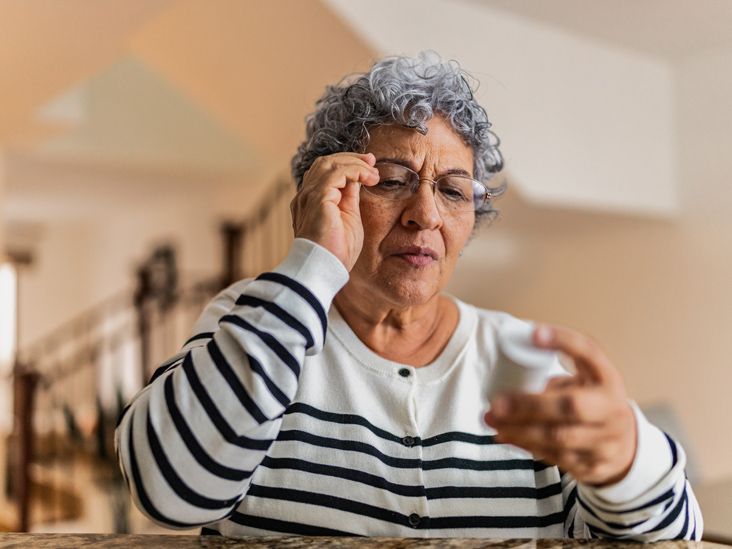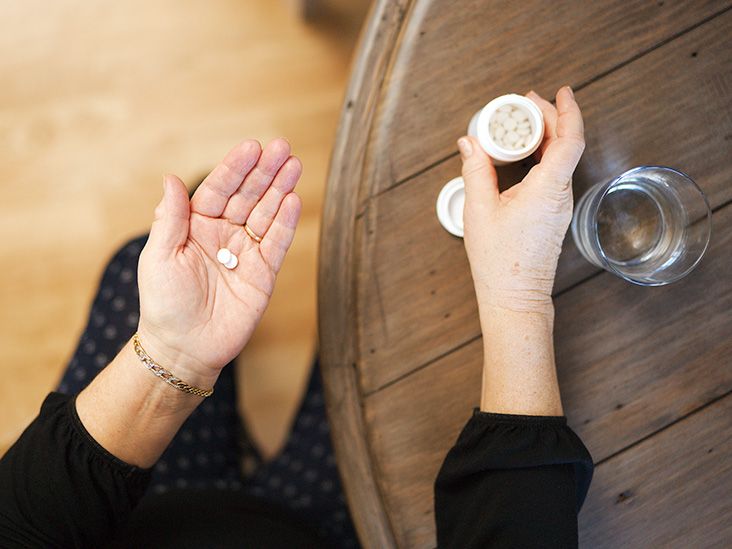Statins are often prescribed to lower cholesterol levels, but not everyone responds to statin treatment. Other medications, such as sequestrants, PCSK9 inhibitors, cholesterol absorption inhibitors, and ACL inhibitors (or a combination of these), are effective alternatives.
Your best treatment option for high cholesterol depends on many factors. Before a doctor recommends a prescription medication, they will look at several factors, such as:
- family medical history
- risk for heart disease
- lifestyle habits
When cholesterol levels go up, healthcare professionals may prefer to start by recommending changes to diet and exercise. If those changes aren’t enough, or if you are at a higher risk for cardiovascular disease, they may start you on medication to help the process along.
Statins are one of the most commonly prescribed medications for managing cholesterol, but these drugs might not be right for everyone.
Other treatment options for high cholesterol, including different medications and lifestyle changes, may be incorporated into the treatment plan. Here are a few alternatives to statin therapy for high cholesterol.
If statins aren’t an option or you experience side effects while taking them, a doctor may prescribe a different drug to treat high cholesterol. A common alternative is a cholesterol absorption inhibitor.
These drugs prevent your small intestine from properly absorbing the cholesterol you consume. If the body can’t absorb cholesterol, it won’t reach your bloodstream.
The only cholesterol absorption inhibitor on the market is the drug ezetimibe. It is available as a generic medication or under the brand name Zetia. This drug can be combined with statins to produce faster results. However, many doctors prescribe ezetimibe alone and combine it with a low fat diet to help reduce cholesterol.
When statin therapy and lifestyle changes aren’t enough to lower cholesterol, a doctor may consider prescribing bempedoic acid (Nexletol), an adenosine triphosphate-citrate lyase (ACL) inhibitor.
The Food and Drug Administration (FDA) approved this medication in 2020 for use in adults with atherosclerotic cardiovascular disease (atherosclerosis) or heterozygous familial hypercholesterolemia (HeFH). HeFH is a hereditary condition that causes high levels of bad LDL cholesterol.
They later expanded approval in 2024 to reduce the risk of cardiovascular events and lower levels of LDL cholesterol in people who have had and have not had cardiovascular events. The updated approval also clarified that this drug can be used with or without statins.
This medication works as an ACL inhibitor by blocking a protein in your liver from making LDL cholesterol. It’s the first drug in the ACL inhibitor class to receive federal approval. There is no generic version of the drug at this time.
Side effects of bempedoic acid may include:
- hyperuricemia, or elevated levels of uric acid in the blood
- increased risk of injuring or rupturing a tendon
- allergic reaction
- muscle spasms
- increased levels of liver enzymes
Nexlizet is a prescription medication used to manage high LDL cholesterol levels. Doctors also prescribe it to reduce the chance of heart attacks and the need for heart surgery in people with heart disease who can’t take statins. It is only available as a brand name and not in generic form.
Nexlizet combines two active ingredients previously discussed: bempedoic acid and ezetimibe.
To lower high cholesterol, a doctor may use Nexlizet in combination with a statin drug, like Lipitor and Crestor, and also recommend a low fat diet.
Possible side effects of Nexlizet, from more to less common, may include:
- respiratory infections
- urinary tract infections (UTI)
- fatigue
- digestive changes
- high levels of uric acid in the blood
- muscle cramps
- abdominal pain
- tendon inflammation and other problems
Another alternative to statins is bile acid-binding resins, or
These are the oldest drugs available to treat high cholesterol. They aren’t as effective as other drugs, so they’re often used by people with cholesterol levels that are only slightly higher than normal.
Sequestrants can also cause vitamin deficiencies when taken for a long time. Vitamin K deficiency is especially dangerous because this vitamin helps stop bleeding.
PCSK9 inhibitors, like statins, are effective in lowering cholesterol. These medications offer an alternative for those who can’t take statins.
The gene proprotein convertase subtilisin/kexin type 9 (PCSK9) determines the number of low-density lipoprotein (LDL) receptors in the body. These receptors then regulate how much LDL cholesterol (sometimes called “bad” cholesterol) enters the bloodstream.
In some people with a certain genetic makeup, the PCSK9 enzyme works in overdrive, leading to fewer LDL receptors and higher blood LDL levels. PCSK9 drugs work by
PCSK9 inhibitors can serve as an alternative for people who cannot take statins, or those who have very high cholesterol levels and are at higher risk of coronary heart disease. They include:
Terms explained
A receptor is a molecule on the surface of a cell. When bound to another molecule, a receptor triggers a specific response depending on the molecules.
An enzyme is a type of protein that allows a chemical process or reaction to occur.
A gene is a part of your DNA that codes for a certain protein that determines a trait.
Many people with high cholesterol also have high triglycerides (a type of fat found in their blood). Some medications can help lower this type of fat directly. Once these levels go down, the total amount of cholesterol is often lowered.
A common prescription for high triglycerides is niacin or vitamin B3. Niacin can help lower bad cholesterol (LDL) and increase good cholesterol (HDL).
This is a good option for people who don’t respond well to other medications because the side effects of niacin are more mild. People taking this medication might
- flushing of the face
- nausea and/or vomiting
- rash
- low blood pressure
- elevated blood uric acid level
- pins and needle sensation
When more aggressive treatment is necessary to treat high triglycerides, a class of medications called fibrates is often prescribed.
Also, dietary supplements of omega-3 fatty acids — found in fish oil — have been shown to reduce triglyceride levels.
A number of lifestyle changes can help lower your cholesterol. These play an important role in lowering high cholesterol.
To help lower cholesterol, managing your weight and eating heart-healthy foods is key. Eating a heart-healthy diet means decreasing the amount of saturated (animal) fat you eat and increasing fiber, fruits, vegetables, whole grains, and fish.
If you have overweight, losing as little as 5 to 10 pounds can help reduce your cholesterol levels. Other important lifestyle strategies to consider are stopping smoking, if you smoke, and reducing the amount of alcohol you consume.
Getting exercise every day is another way to lower high cholesterol. Exercise has other health benefits as well. To add exercise to your lifestyle, you can start with something as simple as taking a short walk each day.
Natural remedies may complement cholesterol-lowering efforts. They should always be used in addition to lifestyle changes. Some of these include:
With a doctor’s approval, these can be easily added to your diet. It’s important to note that you should continue any medication you have been prescribed by a doctor.
Statins are prescription drugs designed to lower cholesterol. Statins function by inhibiting an enzyme needed to produce cholesterol in the liver. Without the help of that enzyme, your body cannot transform the fat you consume into cholesterol.
Having too much cholesterol circulating in your arteries can build up plaque. A buildup of plaque can prevent blood from flowing properly and can increase the risk of a heart attack.
Types of statins available
There are several types of statins available. They include:
High intensity statins:
- atorvastatin (Lipitor)
- rosuvastatin (Crestor)
Moderate intensity statins:
- fluvastatin (Lescol)
- lovastatin (Altoprev)
- pitavastatin (Livalo)
- pravastatin (Pravachol)
- simvastatin (Zocor)
Although all statins work in the same way, your body might respond better to one type than another. This is why doctors sometimes try several types of statins before they find the right one for you.
Some are more likely to interact with other drugs or organic compounds. For example, the statins Lipitor (atorvastatin) and Zocor (simvastatin) can interact with grapefruit juice, according to the
The interaction can be very dangerous. Mixing these drugs with grapefruit can increase the amount of medication in the bloodstream and cause side effects.
Risks and side effects
Although most people benefit from statins, these drugs can have side effects. The most serious side effects occur in people who are taking other medications or who have an underlying health condition. Many side effects go away as your body adapts to the medication.
The most common side effect of statins is muscle and joint aches and pains. The medication can also cause nausea and vomiting.
More serious side effects include liver and kidney damage, an increase in blood sugar, and neurological side effects. In some people, statins can cause a breakdown in muscle cells and lead to permanent muscle damage. However, these are
Below are some common questions about elevated cholesterol and its treatment.
What are statins?
Statins are a class of medications used to lower cholesterol. They work by blocking an enzyme in the liver that helps make cholesterol. Common side effects include muscle and joint pain, headaches, nausea, constipation, and diarrhea.
Can exercise help lower cholesterol?
Yes, exercising regularly can help lower cholesterol levels. It increases the amount of HDL (good) cholesterol while decreasing the amount of LDL (bad) cholesterol. It’s important to get at least 150 minutes of moderate aerobic activity per week.
Are diet and exercise enough to control my cholesterol?
In some cases, yes. Eating a healthy diet and getting regular exercise can help manage your cholesterol levels. However, if you have high cholesterol or other medical conditions, you may need medication to help lower your cholesterol. Be sure to speak with a doctor about the best treatment plan for you.
What medications besides statins are available to control my cholesterol?
If statins aren’t the best option for you, there are other medications available. These include sequestrants, cholesterol absorption inhibitors, and PCSK9 inhibitors. A doctor or healthcare professional can help determine the best type of medication for your specific needs.
There are several different types of statins and alternatives. The important thing is to talk openly with a doctor when deciding on the best treatment for you.
Changes to your diet and exercise, along with natural remedies, may help you if statins cause you to have uncomfortable side effects.
Once you start taking a medication, talk with a doctor if you’d like to make any changes. They can advise when you can lower your dosage or make any changes or additions to your medications.








